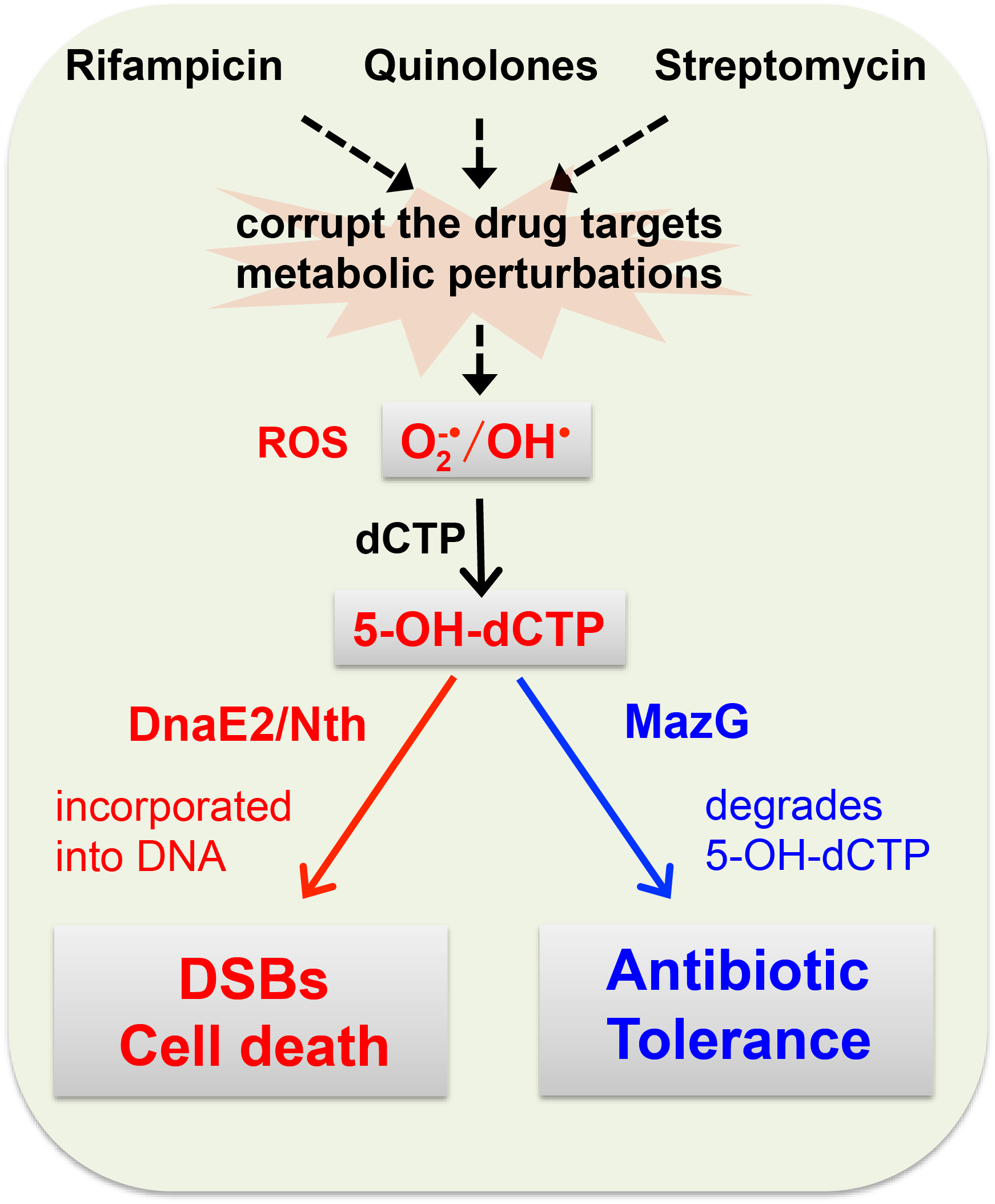
Recent studies have showed that generation of reactive oxygen species (ROS) as a consequence of metabolic perturbation contributed substantially to cell death by bactericidal antibiotics or other lethal stress, indicating that antibiotic-induced metabolic perturbations had strong impact on antibiotic efficacy. However, the molecular mechanisms through which antibiotic-induced ROS actually kills cells remain unknown.
A research group led by Prof. ZHAO Guoping at Shanghai Institute of Plant Physiology and Ecology, CAS Center for Excellence in Molecular Plant Sciences, Chinese Academy of Sciences, together with Dr. LYU Liangdong from Fudan University made new progress in the mechanisms of ROS-mediated antibiotic killing. The findings were published in PNAS.
The researchers found that oxidation of dCTP by antibiotic-induced ROS contributed to antibiotic lethality in stationary-phase mycobacteria. This study provided a model in which antibiotic lethality stemming from 5-OH-dCTP relies on ROS production, DnaE2’s incorporation of 5-OH-dCTP into DNA and lethal DNA double-strand breaks (DSBs) generated by incomplete base excision repair via Nth.
They also demonstrated that the pyrophosphohydrolase MazG encoded by mycobacteria enabled house cleaning of 5-OH-dCTP and thus, the defense against lethal DNA damage induced by antibiotics. Deletion of mazGin Mycobacterium tuberculosis, the causative agent of tuberculosis, resulted in increased antibiotic killing upon stationary-phase culture.
This study exemplified how the events downstream of antibiotic-target interaction could influence antibiotic efficacy. Since lethality stemming from 5-OH-dCTP is only relevant in stationary phase, a multi-stress and non-growing physiological state that is known to be associated with drug tolerance and mutagenesis, this finding may have broad implications not only to antibiotic lethality but also to the mechanism of stress-induced mutagenesis in bacteria.
The work was supported by Chinese National Mega Science and Technology Program and National Natural Science Foundation.

Maintenance of genome integrity plays a critical role for antibiotic tolerance. (Image by the research group)

86-10-68597521 (day)
86-10-68597289 (night)

52 Sanlihe Rd., Xicheng District,
Beijing, China (100864)

